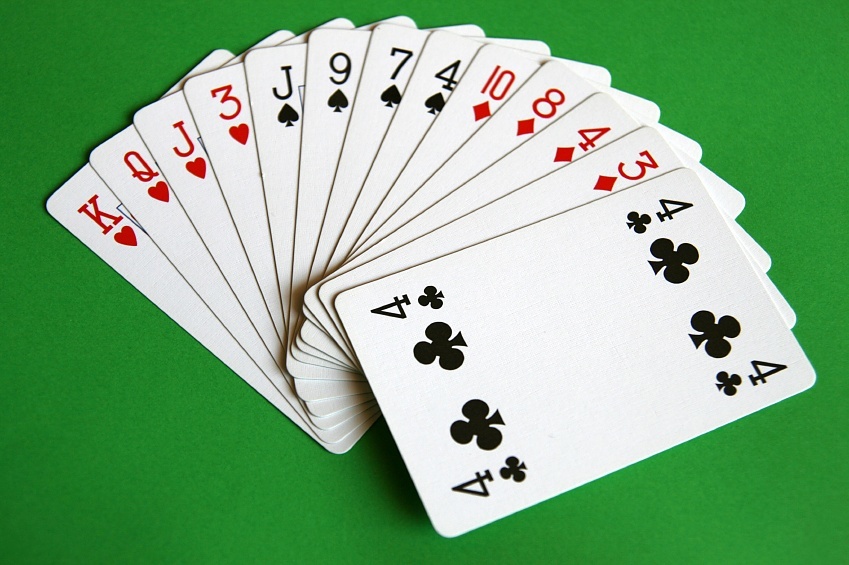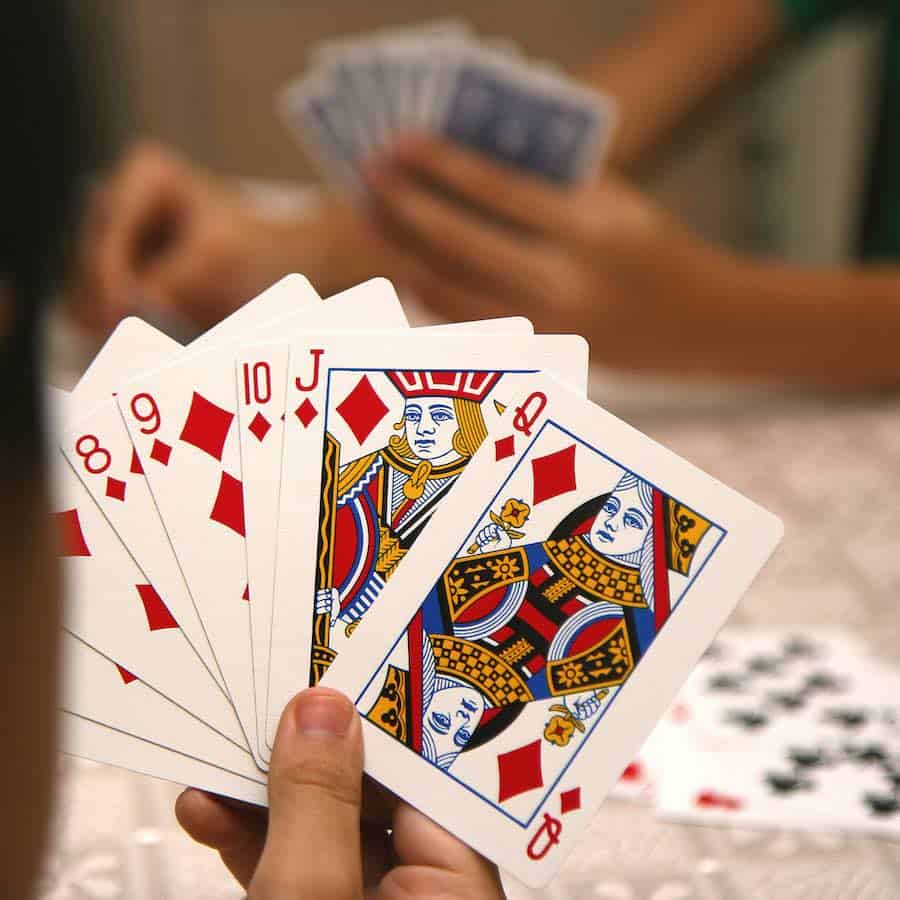5 great card games you’ve never heard of before!
Growing up, you probably played a lot of card games. Remember B.S. and go fishing? What about Uno? When you got tired of that, along came Cards Against Humanity. Once the fun wore off, you may have been left wondering … now what?
So, now what?
Few card games have made it to the average millennial’s table as an activity of choice with a group of friends; however, there are some killer card games on the market. Card games are a great way to break up the monotony of another night of watching Netflix or drinking for the sake of drinking, and they’re much cheaper than a night out at the bar.
So the next time you’re thinking about getting a group of friends together, consider investing in one of these great card games. The rules for all five are fairly easy, the rounds are quick, and you can take all the credit for rekindling the love of a nostalgic past among your friends. They’re organized by the length of the game, starting with the shortest and going to the longest. Sound good? Good. Let’s get in.
1. One Night Ultimate Werewolf
Play with: 3-10 people (10 minutes)
Five-word summary: Partially cooperative, identifies the traitor(s).
Basics: A cooperative game, everyone draws an identity. Almost everyone is part of Team Villager in hopes of keeping the villagers alive; however, there may be one or two werewolves that threaten the safety of the village because if they can trick the villagers into thinking they are also a villager and survive the night, the werewolves win and all the villagers lose.
Play this if you’re looking for: A game with fast-paced rounds, lots of diversions, and quick thinking. It’s a simple game to play multiple rounds, but there is no scoring present, making it easy for people to jump in and out between rounds without affecting others.
2. Hit
Play with: 2-6 people (15 minutes)
Five-word summary: Outsmart your opponents.
Basics: Each player has three identity cards (with different special actions) in their hand and assumes an identity each round; however, they do not necessarily have to have that card in their hand to assume the identity as they lie. If they are caught in their bluff, they lose one of their cards. Players slowly lose cards when they are caught in a lie or when another player’s action forces them to discard a card. Whoever has the final ID card wins the game.
Play this if you’re looking: A quick game evocative of those B.S. field games. This is another game you can easily jump in and out of between rounds.
3 SETS

Play with: 1+ people (20 minutes)
Five-word summary: Competitive matching with friends.
Basics: an 81-card deck contains unique combinations of four distinctive characteristics: number (one, two three), symbol (diamond, squiggle, oval), shading (solid, striped, open), and color (red, green, purple). The cards are deonto the table face up in a grid and players call SET when they see three cards that for each of the four characteristics the cards are all equal, two equal/two different, three equal/one different, or all different. Whoever has the most sets at the end wins the game.
Play this if you’re looking for: Something fun with a little more concentration required (it’s easier to figure out than it looks, believe me) that you can easily jump in or out of mid-round without interrupting other players. Can be played with as many people as you want (also a good brain exercise to practice on your own).
4. Anomia

Play with: 3-6 people (20-30 minutes)
Five-word summary: Tongue-tie phenomenon meets rapid thinking.
Basics: Each card has a symbol and a general category (cheese, actor, cleaning product, etc.). Each player, in turn, draws a card from the center and places it uncovered in front of him. If the symbol for the card just drawn matches the symbol for another player’s card, those two players go head-to-head to see who can name something in the other’s category first (i.e. ‘Brie’ for cheese). Whoever says their word first keeps the other player’s card, so the next person draws a card. Whoever has the largest stack of stolen cards at the end wins.
Play this if you’re looking: A fun, light, easy to play the game. The rules are easy, it doesn’t require much brainpower, and it can definitely be done while drinking.
5. Hanabi
Play with: 2-5 people (20-30 minutes)
Five-word summary: Cooperative solitaire, code signals.
The Basics: Each player holds five hands at the same time, facing away from themselves. You know the cards in everyone else’s hand, but you don’t know your own. Each takes turns making suggestions to players about the cards in their hands to collectively form a solitaire-style stack on the table. On their turn, players can take a hint, place a card in a stack, or discard a card to get a clue token. You’re all playing together, trying to perfectly stack five sets of five different colored ‘fireworks’ (1 placed first, then 2, then 3, then 4, then finished with a 5) for a perfect score of 25. If a crucial card is accidentally discarded, your final score decreases as you won’t be able to complete one of your stacks.
Play this if you’re looking for: A more intellectual game. It’s a great way to test your communication among friends or with significant others. This is not one you can jump in and out of, and it requires some concentratio
Leave a Reply